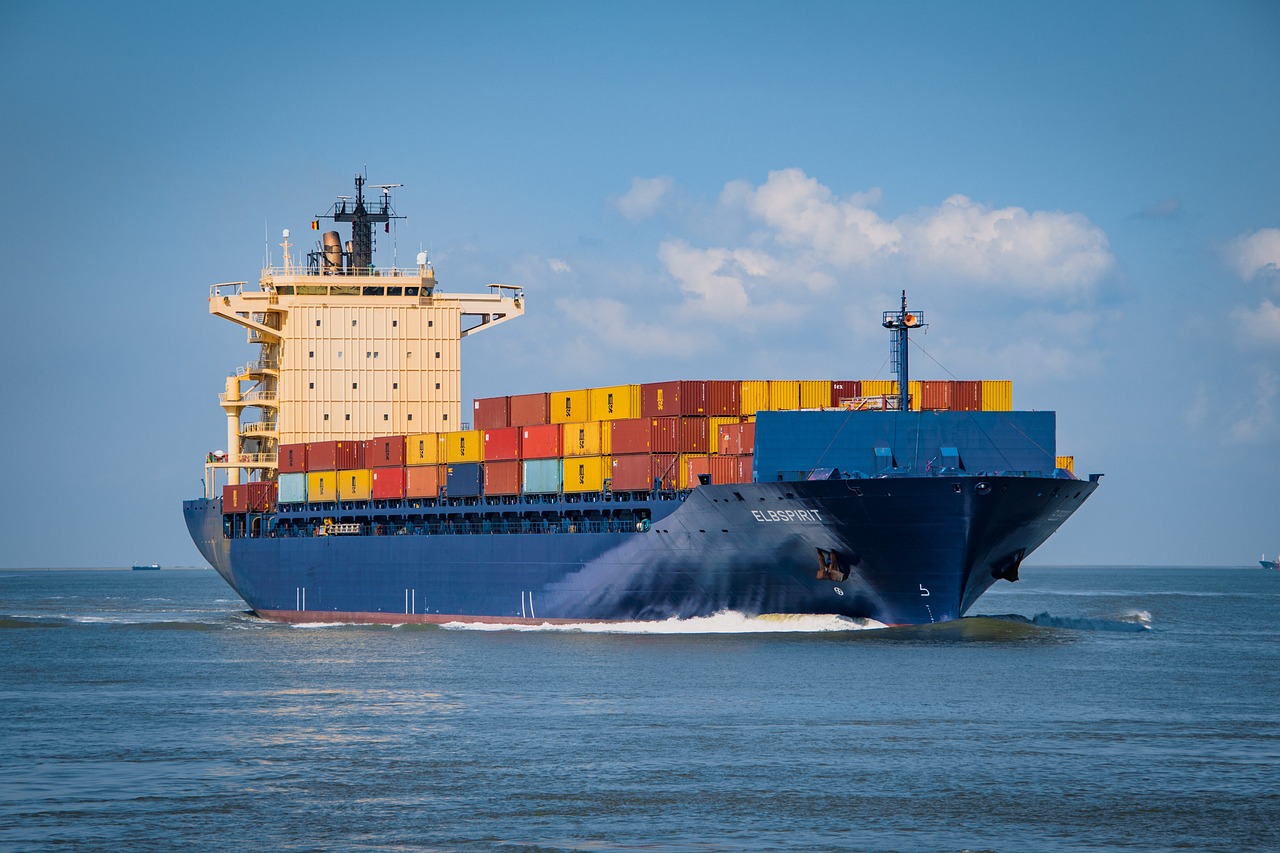As China ramps up its seed industry, eyes are on Canada’s trade relationship with the agricultural giant. But how can we establish better relations with China in light of its continuing ban on Canadian canola seed imports? And should we?
The key, says Carlo Dade who follows Canada-China trade for the Canada West Foundation, is for Canada to figure out what it wants out of its relationship with China. And then go after it despite what our American neighbours might say.
“We have to separate the aspirational elements of what people want out of trade from the reality of trade. Certainly, with agriculture, China is our second-largest agricultural market. It’s roughly 13 per cent of our agricultural trade and has been increasing at a faster rate,” says Dade.
“Canadians tell pollsters that they want less trade with China, yet in the next instant they turn around and open their wallets to China, telling them they want more trade. Canadian consumers and businesses have been doing this while China was holding Canadians hostage. If the reality is that citizens, consumers and businesses are going to increase trade with China, then we had better manage it well.”

Dade has done some of the deepest research in Canada on the agricultural trade relationships between Canada and China. He is co-author of the report When interests converge: Agriculture as a basis of re-engagement with China, which the Canada West Foundation published in November of 2020. It focuses on the potential of agriculture and the need to place it front-and-centre now in anticipation of future change in the Canada-U.S. relationship.
A recent Ipsos poll for Global News finds that eight in 10 Canadians (82 per cent) believe Canada should reduce its reliance on trade with China and diversify to other countries. Dade says doing so is extremely impractical, if not impossible.
“People forget that China is a larger agricultural producer and exporter than is Canada. It’s the largest producer of a lot of what we also produce here in Western Canada. China moves markets,” Dade says.
“If you want to leave China and go to Indonesia, guess who is the largest trade influence, the largest driver of the market, the largest source of finance, the largest political power in the Indonesian sphere? The Chinese. If you decide to do business in Brazil, again, Brazil’s largest trading partner, largest financer, is China. Even if you run away from China, you’re still going to be running into China.”
What then, is Canada to do? The answer, Dade says, is to accept the reality that Canada’s trade relationship with China is an important one, and to begin to find a common interest.
“We know that China needs new seed varieties to increase agricultural production without destroying more land and without using more fertilizer. They have to feed their population. If you want to talk about a country preoccupied with food security, that’s China,” he says.
“But you also have to look at the environmental damage from agriculture, and China’s contending with that. So certainly, something like seed varieties can help. It’s been identified by China in their five-year Agricultural Green Development Plan. Unfortunately, the only thing most Canadians know about that plan is that it’s a plan and it’s five years.”
Playing Politics
That plan was released by the Chinese government in September of 2021, and identifies resource protection, pollution control, restoration of agricultural ecology, and the development of a low-carbon agricultural industrial chain as key goals to be achieved between the years 2021-2025.
As part of the plan, China wishes to develop high-quality crop varieties, while creating up to 1,800 new agricultural product brands which put an emphasis on green production standards, according to a USDA Foreign Service English summary of the document.
Dade says countries like Canada can help them do it, despite political tensions that many believe are resulting in the continued ban by China on shipments of Canadian canola seed.
“Even when they banned our canola seed shipments, they purchased our canola oil from the United Arab Emirates. So, our product will find a way to go to China one way or another,” Dade says.
Since market access issues affecting canola seed trade started in early March
2019, the licenses of two companies, Richardson and Viterra, to export canola seed to China remain suspended. Other exporters are seeing some purchases of canola seed, with exports down between 50 and 70 per cent compared to pre-blockage levels, notes the Canola Council of Canada on its website.
Seed exports to China have fallen from $2.8 billion in 2018 before the restrictions, to $800 million in 2019 and $1.4 billion in 2020, according to the council.
On Sept. 24, 2021, an agreement was reached which brought the extradition case against Huawei Chief Financial Officer Meng Wanzhou to a close and allowed Michael Kovrig and Michael Spavor, who had been detained in China for over 1,000 days, to return to Canada. The Canola Council congratulated the Government of Canada and Canadian diplomats for resolving a major issue impacting Canada-China relations and hope it leads to an environment to resolve the outstanding canola trade issue, says Canola Council President Jim Everson.
“I’m cautiously hopeful. Anything that de-escalates political tension between the two countries and creates an environment where more engagement can take place on issues like the canola ban is helpful in finding a solution on trade,” says Everson.
“More engagement is a good thing. We need more opportunities to engage with China on a range of issues. Our goal is to have a predictable trade environment with China, where all Canadians are treated equally.”
Pressure from Down South
Dade says there will be pressure from some quarters not to engage with China, especially from Washington.
“But we need to remember what the Americans did to us with the renegotiation of the NAFTA agreement. They slipped in a clause at the last minute that was designed to scare us away from engaging China in negotiations for a trade agreement. Meanwhile, what were the Americans doing? They were negotiating their own deal with China that gave U.S. farmers a huge advantage over Canadian farmers in the market,” he says.
“So, we have to watch the Americans with this. If there are opportunities in the seed business, and firms based primarily in the U.S. can get those opportunities, they will tell us not to take them while they’re in Beijing negotiating for those opportunities themselves.”
He notes that it’s crucial for Canada to set its own trade path. Not doing so will only help our competitors, Dade says, adding that this is neither a new idea nor a new path for Canada. Under difficult circumstances at the height of the Cold War, Canada’s Diefenbaker government was able to balance Canadian interests and sell grain to China as it suffered through its greatest famine, against objections from the U.S.
“The U.S. reacted as you’d expect, by coming down on us like a ton of bricks. But Diefenbaker was able to manage that, to stand up to the Americans and not agree to the grain embargo. At the same time, he was working with the U.S. helping to create NATO. So, it is possible to walk and chew gum at the same time,” Dade says.
“The fear that we have over damaging our relationship with the U.S. is constant, but we’ve managed to find a middle ground in the past where we could stand up to them and protect our economic interests. It’s hard work, but it can be done.”
Canada will need to do so if it’s going to capitalize on the innovations coming out of China, of which there appear to be many. Syngenta CEO Erik Fyrwald was recently quoted by Fortune magazine noting that “some 75 per cent¬†of the world’s patents in agricultural gene editing are coming out of China” and “China is not only a player in the field but has become a clear leader in this area.”
In its third quarter results announced in October 2021, Syngenta Group China announced it had delivered strong growth across all segments. MAP sales tripled to $1.5 billion in the first nine months by helping farmers improve soil health, reduce greenhouse gas emissions and improve the quality and value of their crops, the company said.
Syngenta Seeds sales grew 25 per cent to $2.8 billion in the first nine months of 2021. Syngenta’s field crop sales in China tripled due to the consolidation and growth of China’s Winall Hi-tech Seed, which develops watermelon, melon, wheat, pumpkin and vegetable seeds.
China has been working to revamp its seed industry as of late. The Global Conference on Green Development of Seed Industries, organized by the Food and Agriculture Organization of the United Nations (FAO), was held virtually on Nov. 5. Zhang Taolin, vice-minister of Agriculture and Rural Affairs of China, was invited to the conference and delivered a video speech.
Zhang said that¬†China,¬†a major player in agriculture and a large¬†seed consumer, has always attached great importance to the development of seed industries, and has adopted a series of effective measures to promote green development of seed industries and ensure farmers’ access to quality seeds, according to a Chinese government news release.
Zhang put forth three proposals: step up efforts in building international cooperation mechanisms for seed industries; strengthen collaborative breeding at the field level; and stimulate collaboration among market entities, thereby encouraging companies to invest in modern breeding systems.
China is also planning a regulatory overhaul of its seed rules, in order to help pave the way for the approval of new GMO crops, the Chinese government says in a document recently posted to its website for public input.
“We have a system where private sector actors ‚Äî not governments, politicians or polling ‚Äî determine trade realities,” Dade adds.
“When it comes to trade, we can trust China about as much as we can trust the United States. Fact is, the U.S. has a longer and harsher history of being underhanded with Canada on trade than does China, and we just signed a new trade deal with Washington. So if we can manage one, we should be able to manage the other.”













